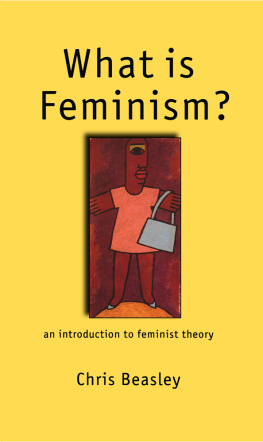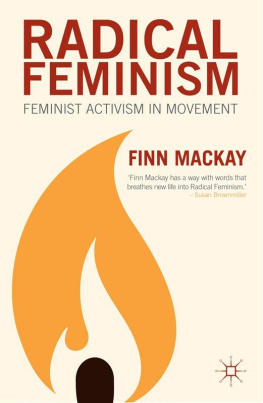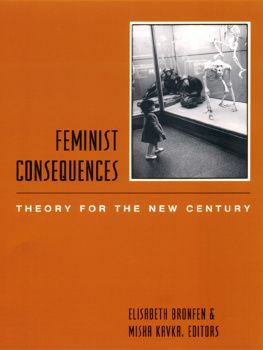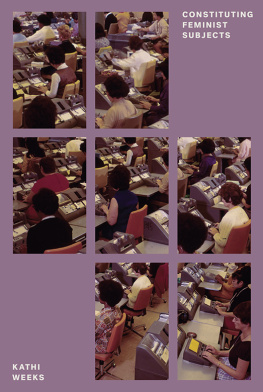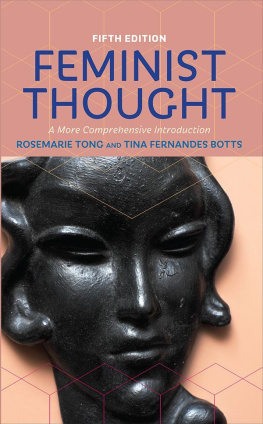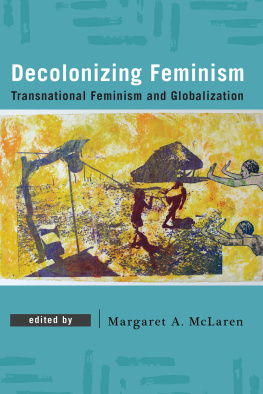ALSO BY JOSEPHINE DONOVAN
After the Fall: The Demeter-Persephone Myth in Wharton, Cather, and Glasgow
Animals and Women: Feminist Theoretical Explorations (edited with Carol J. Adams)
Beyond Animal Rights: A Feminist Caring Ethic for the Treatment of Animals (edited with Carol J. Adams)
European Local-Color Literature: National Tales, Dorfgeschichten, Romans Champtres
The Feminist Care Tradition in Animal Ethics (edited with Carol J. Adams)
Feminist Literary Criticism: Explorations in Theory (edited)
Gnosticism in Modern Literature: A Study of Selected Works by Camus, Sartre, Kafka and Hesse
New England Local Color Literature: A Womens Tradition
P.O.W. in the Pacific: Memoirs of an American Doctor in World War II by William N. Donovan (edited)
Sarah Orne Jewett
Uncle Toms Cabin: Evil, Affliction, and Redemptive Love
Women and the Rise of the Novel, 14051726
Continuum International Publishing Group
80 Maiden Lane, Suite 704, New York, NY 10038
The Tower Building, 11 York Road, London SE1 7NX
www.continuumbooks.com
Josephine Donovan, 2012
All rights reserved. No part of this book may be reproduced, stored in a retrieval system, or transmitted, in any form or by any means, electronic, mechanical, photocopying, recording, or otherwise, without the permission of the publishers and the author.
ISBN: 978-1-4411-7325-6
Library of Congress Cataloging-in-Publication Data
A catalog record of this book is available from the Library of Congress.
Preface to the Fourth
Edition (2012)
Never mind which number we are on,
we need to be making waves.
Jane Spencer, 2007
I n the almost thirty years since I finished writing the first edition of this book women have achieved much: four women on the U.S. Supreme Court, women astronauts, women commanders of space missions, women presidents of major universities, growing numbers of women in leadership positions of national and international political bodies.
But despite these accomplishments, this bookwhich theorizes about the reasons for womens historic subjugationremains as relevant as it was when it first appeared.
Indeed, in recent decades, in the United States particularly, feminism has experienced a withering backlash from which it is only now in the early twenty-first century beginning to emerge.
2008, writes Rebecca Traister in her study of the U.S. presidential election, was the year... the womens liberation movement found thrilling new life. proved to be loud, bright, incontrovertible consciousness-raisers (67). The womens vote in [the] New Hampshire [primary] (which Clinton won, largely by virtue of the womens vote) was a show of political and rebellious feminist force more potent than any march on Washington (106).
Indeed, some are claiming the world has reached a turning point where the voices of women and feminist concerns are claiming center stage. In Why Womens Rights Are the Cause of Our Time (2009) Nicholas D. Kristof and Sheryl WuDunn write,
In the nineteenth century, the paramount moral challenge was slavery. In the 20th century, it was totalitarianism.... [I]n this century it is the brutality inflicted on so many women and girls around the globe.
In this century, they urge elsewhere, the paramount moral challenge will be the struggle for gender equality in the developing world.
In a 2009 article, The Death of Macho, Reihan Salem argues that the era of male dominance is coming to an end (the articles subtitle). For years, the world has been witnessing a quiet but monumental shift of power from men to women.... The death throes of macho are easy to find.
The great shift of power... is likely to be dramatically accelerated by the economic crisis [the Great Recession], as more people realize that the aggressive, risk-seeking behavior that has enabled men to entrench their powerthe cult of machohas now proved destructive and unsustainable in a globalized world. (66)
As women start to gain more of the social, economic, and political power they have long been denied, it will be nothing less than a full-scale revolution the likes of which human civilization has never experienced. (70)
Another theorist, Jonathan Schell in The Unconquerable World (2003), also hopefully projects a worldwide movement a revolution against violence and for social justiceled by women:
Of equal or greater importance [to other factors encouraging the hoped-for revolution] is the feminist revolution.... The public world has hitherto been run by males, and it is clear that, whatever their virtues and vices, their way of doing things has led to an impasse. Experts can dispute whether the unmistakeable male proclivity for
Whether these projections will prove to be too utopian remains to be seen. It is nevertheless the case that feminist theory and feminism itself remain a vibrant, vital, and urgent presense on the world stage, despite oft- and much-repeated death knells. (Time magazine announced the death of feminism 119 times between 1969 and 1998).
The concept of waves and the numerology involved, although a convenient way of characterizing feminist history (which I continue to use) is nevertheless somewhat inaccurate, even with respect to the first (nineteenth-century) and second (latter twentieth-century) waves. And concerning the presumptive third (late twentieth- early twenty-first-century) and putative fourth wave (beginning, as noted, in 2008), it is still too early to ascribe such patterns to events in our time.
In fact, the first wave was not really the first wave of feminism. My studies in the early modern period, which resulted in my book Women and the Rise of the Novel, 14051726, have made it clear to me that there was an earlier feminist wave in the fifteenth, sixteenth, and seventeenth centuries in Western Europe. Many of the issues that feminists are concerned about todayrape, sexual harassment, violence against womenwere issues for women then. Likewise, women then articulated demands for equitable education and for respectful treatment as rational, dignified subjects. This wave of feminism, which peaked in the late seventeenth and early eighteenth century, was followed by a counterrevolution that lasted through much of the eighteenth century during which feminist claims were ridiculed and, finally, suppressed.
The next wave, which we now call the first wave (discussed in Chapters 1 and 2 below), began in the late eighteenth century and continued until the early twentieth. It too precipitated a kind of backlash and suppression, even though it succeeded in institutionalizing many of its central claims.


